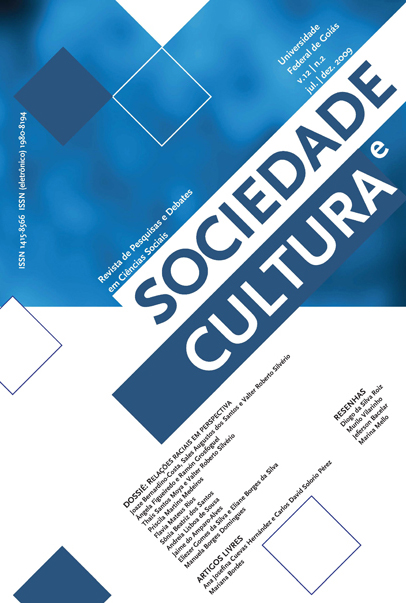La formación de lares gobernados por mujeres en los sectores urbanos pobres en Colima, México: un análisis de cinco casos
DOI:
https://doi.org/10.5216/sec.v12i2.7992Palabras clave:
lares gobernados por mujeres, cambio social, mujeres, prejuicio, clase socialResumen
Este artículo analiza los factores que llevaron a mujeres de dos ciudades de porte mediano del occidente de México a transformarse en “jefes de familia”. La discusión tiene como objetivo mostrar las razones por las cuales las mujeres rompieron con sus maridos, así como los caminos que siguieron antes de que se transformasen en “cabezas” de su propia casa. El estudio busca mostrar los caminos y las condiciones que llevaron a muchas mujeres a formar familias no tradicionales como consecuencia de fenómenos externos, tales comola globalización, la urbanización y la modernización, que están entre los principales factores.Descargas
Los datos de descargas todavía no están disponibles.
Descargas
Publicado
2010-03-18
Cómo citar
CUEVAS HERNÁNDEZ, ANA JOSEFINA; SOLORIO PÉREZ, CARLOS DAVID. La formación de lares gobernados por mujeres en los sectores urbanos pobres en Colima, México: un análisis de cinco casos. Sociedade e Cultura, Goiânia, v. 12, n. 2, p. 331–342, 2010. DOI: 10.5216/sec.v12i2.7992. Disponível em: https://revistas.ufg.br/fcs/article/view/7992. Acesso em: 19 feb. 2026.
Número
Sección
Artigos Livres
Licencia
Autores/as que publican en esta revista están de acuerdo con los siguientes términos:
- Autores/as mantienen los derechos autorales y ceden a la revista el derecho de primera publicación, siendo el trabajo simultáneamente licenciado por la Creative Commons Attribution License, lo que permite el compartir del trabajo con reconocimiento de autoría y de la publicación inicial en esta revista;
- Autores/as tienen autorización para asumir contratos adicionales separadamente, para distribución no exclusiva de la versión del trabajo publicada en esta revista (ejemplo: publicar en repositorio institucional o como capítulo de libro), con reconocimiento de autoría y de la publicación inicial en esta revista;
- Autores/as tienen permiso y son estimulados/as a publicar y a distribuir su trabajo en la web (ejemplo: en repositorios institucionales o en su página personal) a cualquier punto antes o durante el proceso editorial, ya que eso puede tener alteraciones productivas, así como aumentar el impacto y la cita del trabajo publicado (véase O Efeito do Acesso Livre).



